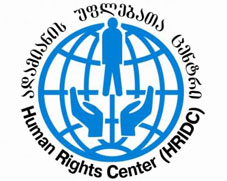
The Human Rights Center appeals to banks to strengthen the protection of consumer rights
By Anastasia Sokhadze
Friday, October 9
The Human Rights Center calls on banks and other financial institutions operating in Georgia to provide their customers with detailed and comprehensive information on new payment schedules for deferred loans.
The Human Rights Center is studying the state of emergency caused by the coronavirus pandemic and the period after its completion, reveals the main tendencies of human rights violations and provides qualified legal assistance to human rights violators.
According to them, within the framework of the ongoing project Free Legal Advocacy and Human Rights Monitoring after the Pandemic with the support of the Embassy of the Netherlands in Georgia, the Human Rights Center monitors local visits to Tbilisi and 5 regions of Georgia (Shida and Kvemo Kartli, Kakheti, Imereti, and Samegrelo).
Socio-economic problems are especially prevalent in the reports received from the population, as well as in the appeal for free legal aid to the organization. In particular, a large part of the referral is related to the financial liabilities of the population in banks and other financial organizations, which had a particularly painful effect in the light of the crisis created by the pandemic and the depreciation of GEL.
Given the current situation and expected risks due to the spread of the new coronavirus (COVID-19) in the country, several commercial banks in Georgia, in March 2020, offered customers a three-month grace period. Loans were to be deferred without interest capitalization. Three months later, commercial banks postponed debt payments for another three months.
"First of all, it is welcomed that during the critical period, large commercial banks and some microfinance organizations operating in Georgia, within the framework of social responsibility, make a decision to defer loans. However, given the current situation, this process did not go smoothly and a number of problems were identified,” read the statement.
Initially, in some commercial banks, the benefits were to apply to almost all of their clients. According to the banks, they offered all customers to defer the loan via SMS, which they could also refuse to send to customers via a short text message. However, the monitoring revealed a number of people who did not consent to the deferral of the loan, and as they point out, the loans were still deferred against their will.
The low level of awareness of the decision made by the banks for their own clients was constantly observed in the conditions of the spread of the pandemic.
There have been isolated cases when, despite numerous prior and public statements, after the deferral of loans, citizens have increased the amount of interest payable.
During the state of emergency in the country, a large number of citizens were unable to pay the banks on time, which resulted in overdue payments.
The Human Rights Center monitors have identified isolated cases where, in similar circumstances, banks did not take into account the force majeure situation and imposed either a fine or interest on the customer, which increased both the full and monthly interest rates on their loans.
The center calls for a temporary moratorium on the eviction of people at risk of homelessness due to the non-fulfillment of financial obligations.
The Human Rights Organization is actively working in different regions of Georgia. The offices of the Human Rights Center are located in Tbilisi, Batumi, Gurjaani, and Gori.
The priorities of the Human Rights Center are promoting the rule of law, developing civil society, promoting freedom of expression, and preventing discrimination.


